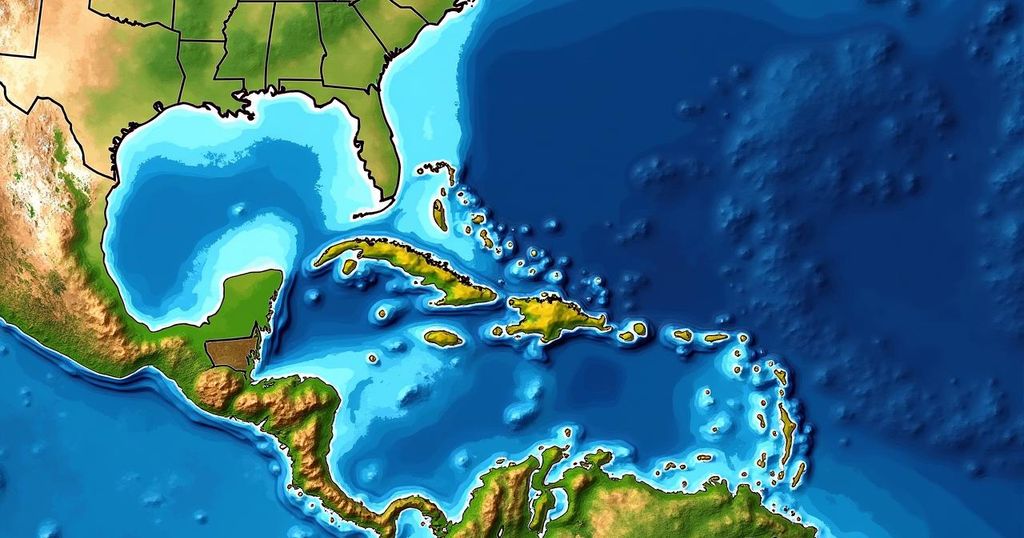Tropical Disturbance Invest 94L: Monitoring Developments in the Caribbean

Bryan Norcross reports on tropical disturbance Invest 94L, currently tracking west in the Atlantic with low immediate chances for development. Conditions may improve as it nears northeastern Caribbean islands by Friday. Uncertainty remains high regarding its evolution and potential impacts, particularly near Puerto Rico and the Dominican Republic, while Florida is not expected to be affected.
Meteorologist Bryan Norcross provides an update regarding a tropical disturbance known as Invest 94L, which is currently traversing the middle of the tropical Atlantic. Over the next few days, the likelihood of development remains low due to dry atmospheric conditions preventing thunderstorms from forming around its circulation. However, it is anticipated that as the system approaches the northeastern Caribbean islands by Friday, environmental conditions may become more favorable for development. This year, it is somewhat unusual to observe a tropical disturbance originating from Africa reaching the Caribbean in mid-October due to typically cooling ocean waters and an increase in adverse upper-level winds. Remarkably, the current warm ocean temperatures and a high-pressure system to the north are altering the disturbance’s usual trajectory. Satellite imagery indicates some thunderstorm activity attempting to develop near the disturbance’s center, indicating a potential for evolution. The National Hurricane Center has assigned a medium probability for this system to progress into at least a tropical depression upon reaching the area north of Puerto Rico and surrounding islands by Friday. While most computer model predictions agree on the system’s location at that time, its potential organization could range dramatically, from merely a surge in moisture to the formation of a robust tropical cyclone with a defined circulation. Post-Friday, the forecast suggests that steering currents may weaken, resulting in the system drifting close to Puerto Rico, the Dominican Republic, Haiti, or the southeastern Bahamas. A range of impacts, from a tropical storm to a hurricane, may manifest across these islands. It is important to emphasize that as steering flows diminish, uncertainties in the track predictions will likely increase. Residents in Puerto Rico, the Virgin Islands, Hispaniola, the southeastern Bahamas, and adjacent areas should remain vigilant for further updates throughout the week. Furthermore, there appears to be no imminent threat to Florida. The presence of a cold front in or near South Florida, accompanied by a significant dip in the jet stream over the Bahamas, is anticipated to shield the state from potential tropical systems for the time being. Nevertheless, further observation is necessary to ascertain the disturbance’s evolution.
The report discusses the current status and potential development of a tropical disturbance designated as Invest 94L, which is moving through the tropical Atlantic towards the Caribbean. Such disturbances can affect weather patterns and prompt monitoring by meteorological services, particularly during the hurricane season. October presents a more complex scenario for tropical developments, as atmospheric and oceanic conditions typically denote a decline in tropical storm activity. However, anomalies in seasonal patterns have the potential to yield surprises, hence the necessity for continued observation and analysis by experts in the field.
In summation, the tropical disturbance Invest 94L is under close observation by meteorological authorities, with its chances of development expected to increase as it approaches the northeastern Caribbean by Friday. While the initial likelihood of forming into a tropical storm is low, conditions may become more favorable as it approaches Puerto Rico and nearby islands. Residents of affected regions are advised to stay informed as developments unfold, while Florida is presently not under threat from this system. Overall, the situation remains fluid, warranting ongoing scrutiny from weather professionals.
Original Source: www.foxweather.com






